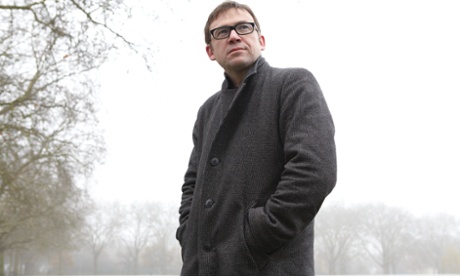
So, here we go. A new book by David Nicholls is now an event that measures pretty near a 10 on the publishing industry Richter scale. Yet for all the magnitude of hype that will herald its arrival, Us is in some ways quite a gentle book. It doesn’t scream about itself, but is no worse for that.
Us is the story of a family. It is the story of Douglas Petersen, his marriage to Connie, and their teenage son Albie. They go on holiday. A trip around Europe by train. They visit the major cities of Europe – Paris, Amsterdam, Venice and so on – but, as with the mega-selling One Day, what it is really about is the two biggest subjects, love and time. Things are coming to an end. One way or another this will be the last family holiday for the Petersens.
Yet while One Day was about people who should be together but, for the most part, don’t realise it, Us is kind of about the opposite. Douglas and Connie are together, but possibly shouldn’t be. This is certainly what Connie thinks, when she declares that she wants a divorce. Or at least thinks she does. Added to that, Albie is about to leave home and go to university.
There is something intrinsically funny about holidaying relatives that makes for good comic fiction – think Greene’s Travels With My Aunt or the awkward family holiday to Africa in Jennifer Egan’s A Visit from the Goon Squad. The Amsterdam section, in particular, is full of laughs. Poor Douglas has inadvertently booked the family into a sex hotel, triggers a whole row of bikes and motorbikes to domino to the ground, and narrowly escapes a beating by running into a prostitute’s red-lit townhouse. It could almost be National Lampoon’s European Vacation. Yet the keynote here is poignancy, not laughter.
Douglas isn’t just a fish-out-of-water on foreign soil. He is a misfit in his own family. Whereas Connie is the ultimate liberal parent, and Albie is an experimental, messy, cool 17-year-old with a passion for leftfield photography, Douglas is resolutely not those things. “I wasn’t aware of having been relaxed at any time in my entire life,” he says, almost as a boast.
It is Douglas’s character that makes this book. An uptight 54-year-old who doesn’t like spicy food, or spicy anything. But there is emotion here, flowing under his oppressive reasonableness. For instance, we learn, quite early, that Albie had a sibling, who died shortly after birth. During the holiday Douglas ruminates deeply on this and other incidents in their past, to try to understand how things went wrong in his relationship with Connie.
Douglas is almost heroically unromantic. At one point, after inadvertently stealing some soft mints at Munich airport, he becomes determined. “There’s a saying, cited in popular culture, that if you love someone you must set them free. Well, that’s just nonsense. If you love them you bind them in heavy chains.”
It is not a perfect novel. In place of the high concept narrative neatness of One Day, Douglas’s soul-searching means that here we get a lot of flashbacks. All this time-gazing can become slightly arduous and the forward-back rhythm can become monotonous at times. But in most ways, I think Nicholls has raised his game. This is a grownup book, and one deserving of its Man Booker longlisting.
Nicholls’s gift is character. There is a sharp empathetic intelligence to his writing that makes his characters real. He is far from a stylistic show-off – his intelligence isn’t worn on his sleeve, but the clear writing often dazzles with truth.
Yes, it is an easy book to read. Yes, it will sell millions. Yes, some people who don’t know any better will be snobby about it. But there is real philosophical depth amid the entertainment. Nicholls has a feel for the big stuff, even as he zooms in on the soft mints, making this a sad, funny, soulful joy of a book.
Matt Haig’s The Humans is out now in paperback (Canongate).
Us is published by Hodder & Stoughton (£20). Click here to buy it for £15 with free UK p&p

